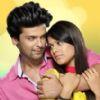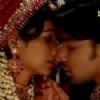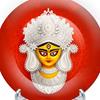In those times, royalty used to practice the custom of niyoga. If the king is dead or is unable to have children, his wife or wives could have children from either a worthy Brahmin or from the king's male relative.
According to this Hindu tradition the man who was appointed must be or would most likely be a revered person. There were various clauses associated with this process, as follows:1) The woman would agree for this only for the sake of rightfully having a child and not for pleasure.2) The appointed man would do this for Dharma, considering it as his duty to help the woman bear a child and not for pleasure.3) The child thus born would be considered the child of the husband-wife and not that of the appointed man.4) The appointed man would not seek any paternal relationship or attachment to this child in the future.5) To avoid misuse, a man was allowed a maximum of three times in his lifetime to be appointed in such a way.The act will be seen as that of Dharma and while doing so, the man and the wife will have only Dharma in their mind and not passion nor lust. The man will do it as a help to the woman in the name of God, whereas the woman will accept it only to bear the child for herself and her husband.In Niyoga, the bodies were to be covered with "ghee" (so that lust may not take root in the minds of participants but actual act may take place for conception).Sons born in this fashion were considered the legal progeny and heirs of the king, so the birth of Pandu, Dhitrashtra, Vidura and all five Pandavs was in line with the social norms of those days.























comment:
p_commentcount